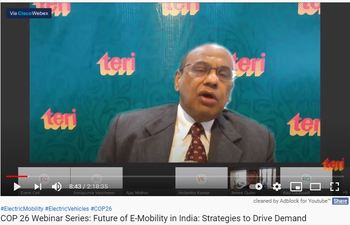Challenges and Perspectives for the Use of Electric Vehicles for Last Mile Logistics of Grocery E-Commerce – Findings From Case Studies in Germany
Publication Year: 2019
Author(s): Ehrler VC, Schöder D, Seidel S
Abstract:
The analysis of grocery e-commerce in Germany has shown that the market is developing slowly at the moment but that an uptake of the growth trend is to be expected in the near future. Another trend is the development of online shopping of goods. Increase of online shopping in other ranges has come about in expanded transport request due to deliveries and returns. Therefore, an approach is needed to uncouple grocery supply related transport demand from emissions augmentation. This is only possible, if transportation efficiency is further improved and if lower emission technologies (noise and fumes) are applied, e.g. electric vehicles. Focusing on the German market and using the test case of a renowned logistics service provider who trialed e-vehicles for commercial transport, this paper discusses potential shifts in grocery shopping habits, maps out perspectives, prerequisites and challenges for a shift to electric vehicles for their distribution and derives recommendations for industry and politics based on the findings. The analysis of online grocery shopping had to be based mainly on secondary data, analysis of the potential and prerequisites for the use of electric vehicles for their distribution are based on real-life test cases. This is due to the fact that primary data on commercial transport and on logistics structures of groceries in particular is difficult to obtain in general, and especially in Germany. The real-life test cases of electric vehicles for grocery deliveries were piloted by Hellmann Worldwide Logistics in Germany and were accompanied by the researchers. The synthesis of the insights gained build the basis for a discussion, whether e-mobility is the right approach to cope with the impact of the trends of urbanization and online grocery shopping and which further developments are needed for reducing grocery-logistics related emissions. Limitations experienced during the research and challenges encountered build the basis for the identification of further research fields needed in order to be able to develop and conceive sustainable urban logistics concepts. Findings are included in the logistics service provider's involved endeavors to further reduce their emissions. A wider data basis is needed to identify best practice for innovative grocery logistics and to be able to computerize which savings in emissions can be made over the entire logistics chain when upstream processes are included. Furthermore it is important to include a broad range of shareholders – customers of deliveries, general public, and representatives of municipalities – in future.
Source of Publication: Research in Transportation Economics
Vol/Issue: 100757:1-9pp.
DOI No.: 10.1016/j.retrec.2019.100757
Country: Germany
Publisher/Organisation: JAI Press
Rights: Elsevier Ltd.
Theme: Vehicle Technology | Subtheme: Electric vehicles
Related Documents
Opinions/Videos

COP 26 Webinar Series: Future of E-Mobility in India: Strategies to Drive Demand
Published Year: 2020
Abstract:
Due to the COVID19 lockdown, one of the most visible impacts has been on the mobility sector,... Read More
Case Study
E- Rickshaw Operational and Deployment Strategy – Case of Kakinada
Published Year: 2017
Abstract:
This report, ‘E Rickshaw deployment plan and report: Kakinada’, i... Read More
Opinions/Videos
Why Electric Vehicles Are Going To Take Over The World
Published Year: 2020
Abstract:
Interesting times in the electric vehicle market, as more and more carmakers try to position t... Read More



